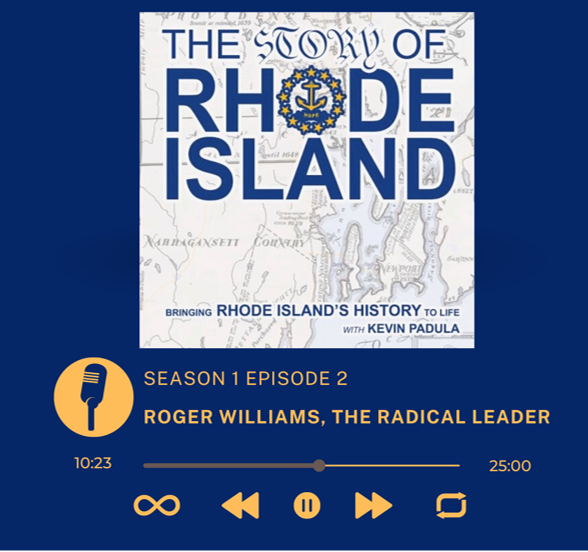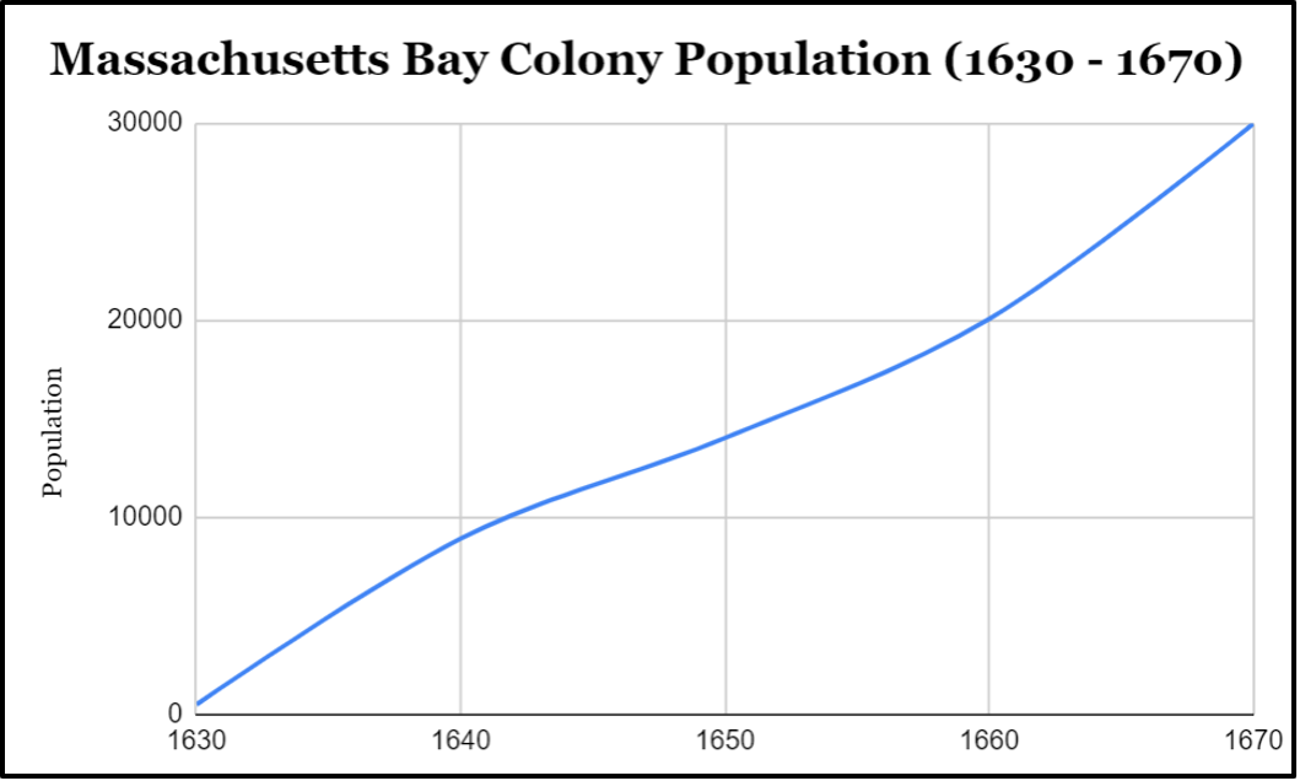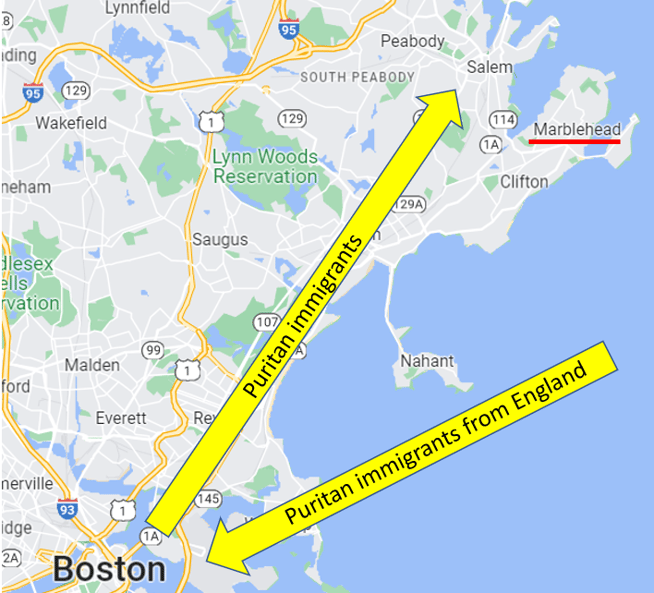Roger Williams continues advocating for religious freedom while also developing a devout following in Massachusetts so the leaders of Massachusetts decide that they must silence Williams once and for all.
18 minutes | 1632 - 1636
Hear About:
📜Roger Williams continues advocating for religious freedom while also defending the rights of the natives of New England
📜Roger Williams' following grows in Massachusetts
📜Roger Williams is banned from Massachusetts

Thomas Dudley
A man with a rich military history and who had little patience for those who were not willing to conform to his religious beliefs, Dudley was voted to be Governor after some felt as though John Winthrop was too lenient of a leader.
(Picture: English: Vermont, E. de V. America Heraldica. 1886-89; rpt. New York: Heraldic Publishing Co, 1965
and American Heraldry Society)
William Bradford
The Governor of the separatists colony, known as Plymouth, and one of the Pilgrims to founded Plymouth Colony back in 1620.
(Picture: jeffesp0Follow, William Bradford
A statue of William Bradford in Plymouth, Ma.)
John Cotton
A famed Puritan minister who had little sympathy for Roger Williams' radical ways.
(Picture: https://collections.gilcrease.org/object/01261004, John Smibert)

The Great Migration
From 1630 - 1670 the population of the Massachusetts Bay Colony drastically increased. This was partially because of the tens of thousands of Puritans fleeing England to escape religious persecution, a movement known as the Great Migration today. As the population grew so did the need for land in Massachusetts.

Annexation of Marblehead
As Puritans flowed into Boston during the Great Migration some of these families moved north to Salem. By the mid 1630s, Salem needed to expand their borders and had been asking the leaders of Massachusetts to allow them to annex the Marblehead peninsula to the east. However, the Massachusetts magistrates made it clear that they'd be unable to do so until the Church of Salem gave up their support for Roger Williams.

Little Ice Age
When Roger Williams was banned from Massachusetts, New England was in the middle of a little ice age. Temperatures dropped so low that even the Narragansett Bay froze over.
Roger Williams and John Winthrop had every reason to despise each other but somehow they remained friends for most of their lives. When Roger Williams arrived in Massachusetts John Winthrop referred to him as a "godly minister". Then, even after battling about religious freedom for years, John Winthrop came to Williams aid when he was banned from Massachusetts. Williams thought that he would be allowed to stay in Salem until the winter passed but when the Massachusetts magistrates heard that Williams was once again advocating for religious freedom they secretly sent troops to his house to have him arrested and sent back to England. Thankfully, Williams was able to escape before they arrived because John Winthrop secretly sent him a letter warning him that troops were headed his way. The two remained in contact until the mid 17th century when their friendship eventually dissolved as Winthrop began attacking Rhode Island's sovereignty.
- Roger Williams and the Creation of the American Soul: Church, State, and the Birth of Liberty by John M. Barry
- God, War, and Providence: The Epic Struggle of Roger Williams and the Narragansett Indians Against the Puritans of New England by James A. Warren
- Mayflower: Voyage, Community, War by Nathaniel Philbrick
- Rhode Island's Founders: From Settlement to Statehood by Patrick T. Conley
- The Puritan Dilemma: The Story of John Winthrop by Edmund Morgan
- Changes in the Land: Indians, Colonists, and the Ecology of New England by William Cronon
- Manitou and Providence: Indians, Europeans, and the Making of New England, 1500-1643 by Neal Salisbury
- The Gentle Radical: A biography of Roger Williams by Cyclone Covey
- Roger Williams: The Church and the State by Edmund Morgan
- Rhode Island: A History by William G. McLoughlin
- Roger Williams: A Rhode Island and American Founder by Alan E. Johnson